More research needed to determine if sleep medications prevent, delay Alzheimer’s
Sleeping pill reduces levels of Alzheimer’s proteins


More research needed to determine if sleep medications prevent, delay Alzheimer’s
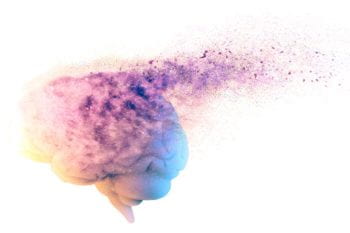
Findings, in mice, open up drug development possibilities for brain diseases linked to tau protein

Honored for work developing new kind of therapy for neurodegenerative diseases
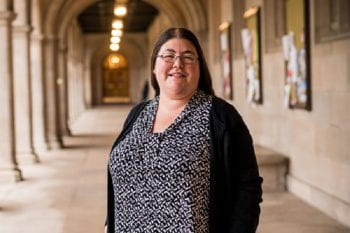
Funding from the National Institutes of Health will help Jackrel and her team study Matrin-3, a poorly understood protein linked to several neurodegenerative disorders.
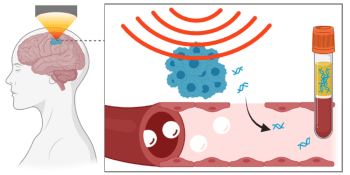
Research could facilitate diagnosis of Alzheimer’s disease
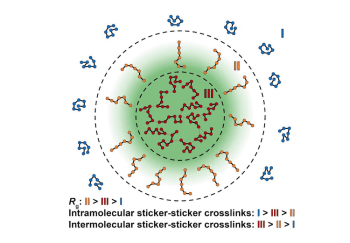
Research from labs of Rohit Pappu, collaborators sheds light on condensate characteristics
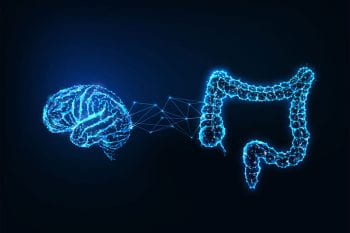
Findings suggest new approach to treating Alzheimer’s, other neurodegenerative diseases

“These trials don’t go without huge input and commitment from the participants and of course, their caregivers, and the clinical trial sites. I have the privilege of speaking to you about the trial as the lead author of this paper, but this is a team effort and includes a large group of people from multiple […]
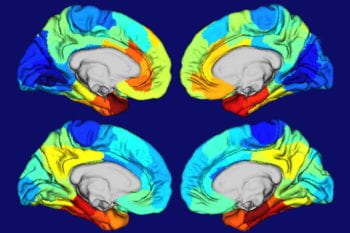
Findings could help explain rare symptoms such as problems with language, vision
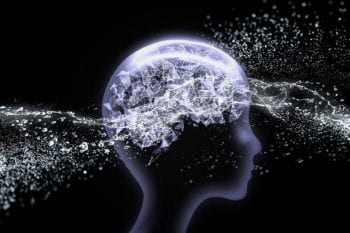
Findings in mice suggest new therapeutic approach to Alzheimer’s, other age-related diseases
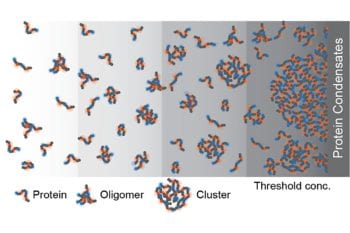
Symposium brings together key leaders in the field
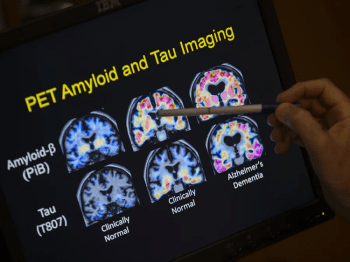
An idea that has propelled Alzheimer’s research for more than 30 years is approaching its day of reckoning. Scientists are launching a study designed to make or break the hypothesis that Alzheimer’s is caused by a sticky substance called beta-amyloid. The study will give an experimental anti-amyloid drug to people as young as 18 who […]
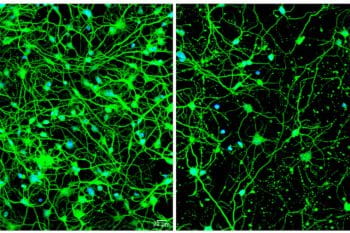
Neurons made from Huntington’s disease patients’ skin cells shed light on cognitive decline

Song Hu, Yong Wang team up to find quantitative biomarkers for clinical pain management
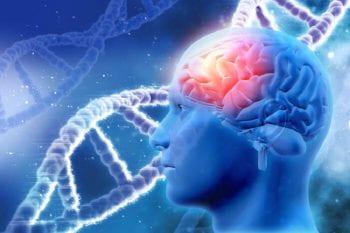
Researchers from several labs to study role of transposable elements
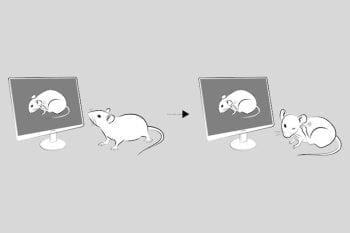
Behavior surprisingly does not require brain’s visual cortex
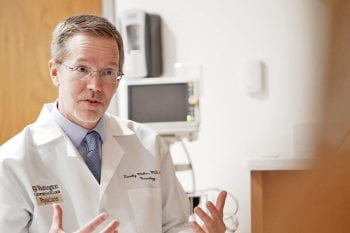
Extended use of tofersen may help stabilize muscle strength, control
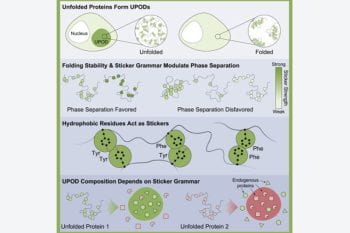
Research uncovers how unfolded proteins are discarded, and how a perfectly good protein can wind up in the trash
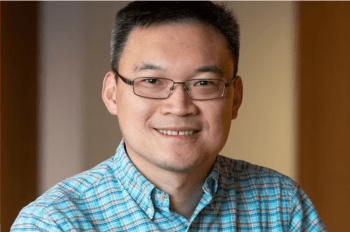
Our brains consume huge amounts of energy and rely on oxygen supplied by blood vessels. When the brains of infants are deprived of oxygen for any reason, it can lead to brain injury that causes cerebral palsy, epilepsy or cognitive impairment. Song Hu, PhD, associate professor of biomedical engineering in the McKelvey School of Engineering […]
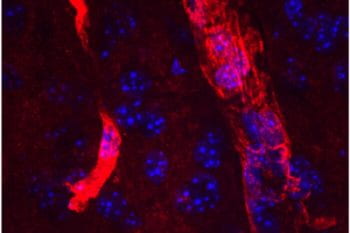
Could aid efforts to find treatments for Alzheimer’s, other diseases
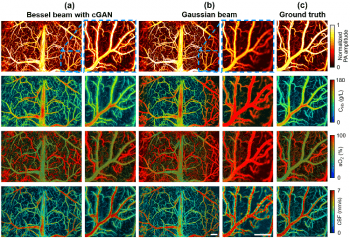
Song Hu combines hardware and machine learning for precision imaging technique
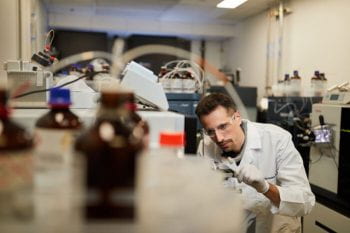
A new center established at Washington University School of Medicine in St. Louis aims to accelerate research into biomarkers of neurodegenerative conditions such as Huntington’s and Parkinson’s diseases, amyotrophic lateral sclerosis (ALS), multiple sclerosis (MS) and the so-called tauopathies, a group that includes Alzheimer’s disease along with rarer diseases such as frontotemporal dementia, corticobasal syndrome […]
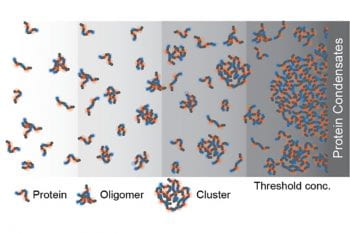
Every cell contains millions of protein molecules. Some of them have the ability to phase-separate to form non-membrane-bound compartments, called biomolecular condensates, inside a cell. It has long been assumed that there was no further structure underlying these condensates, only solution-soluble proteins. A research group led by Rohit Pappu, PhD, the Gene K. Beare Distinguished Professor […]

A new study from Washington University School of Medicine in St. Louis demonstrates that certain human gut microbes can mine dietary fiber to extract nutrients that otherwise would remain inaccessible to the human body. The study, published June 27 in the journal Cell, illustrates how the fiber byproducts of food production — such as rinds, peels […]
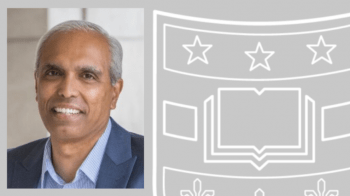
Intrinsically disordered regions (IDRs) of proteins, when tethered to folded domains, function either as flexible tails or as linkers between domains. Most IDRs are composed of a mixture of oppositely charged residues. Recent measurements of tethered polyampholytes have shown that arginine- and lysine-rich sequences tend to behave very differently from one another. In a paper […]
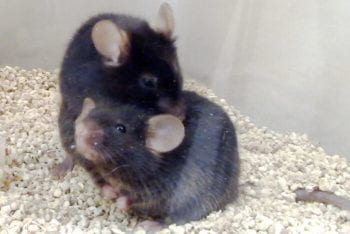
Similar to itch, pleasant touch transmitted by specific neuropeptide and neural circuit

3 of 4 tests performed inconsistently across racial groups

Diagnosing, treating sleep apnea may make driving safer for older adults
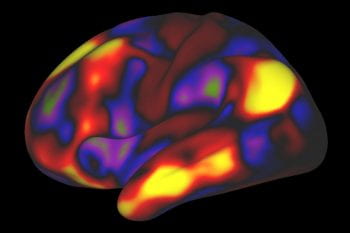
Multicenter team aims to understand how, why brain changes with age
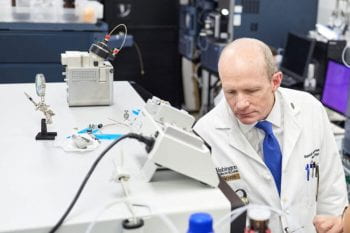
When combined with genetic risk factors, test up to 93% accurate at identifying people at risk of Alzheimer’s dementia

Three-year $225,000 grant

These vesicles are critical for proper cell function

Five-year $2.3 million grant
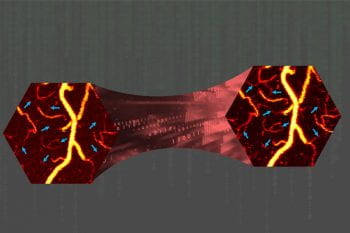
The two-step denoising technique was developed in Song Hu’s lab
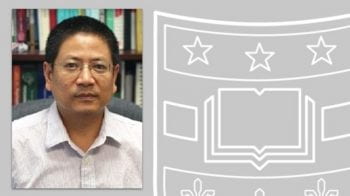
Five-year $2.5 million grant from NIH

Three-year $1.1 million grant from CDI
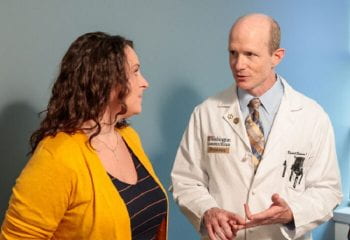
Drugs targeting amyloid, tau to be evaluated together

Four-year and one-year grants totaling $3.3M

Too little and too much sleep linked to cognitive decline
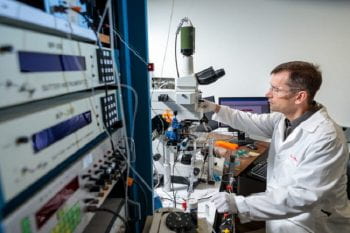
Complements efforts of Taylor Family Institute to develop treatments for psychiatric illness

Alzheimer’s dementia predicted by brain amyloid levels, age
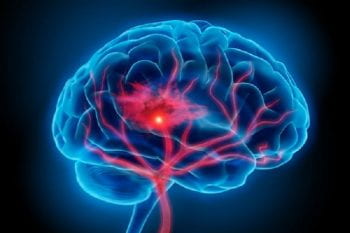
Song Hu, Lan Yang, Jin-Moo Lee, MD, PhD collaborate on NIH-funded work
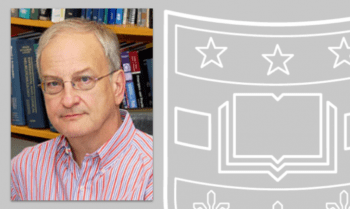
Expert on peripheral nervous system honored for work as educator, clinician, researcher

Jai Rudra, Meredith Jackrel to use nanofibers to develop new vaccines
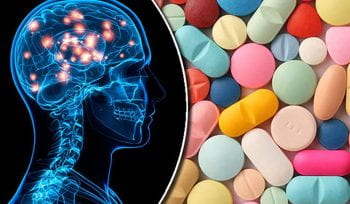
Study points to FDA-approved drugs that have potential to slow or reverse brain damage

Recognized for expertise in brain injury, impact as mentor
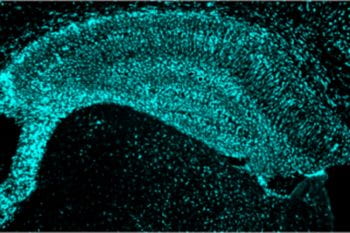
Brain protein reduces Alzheimer’s-like brain damage in mice
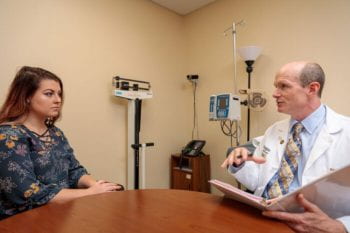
International clinical trial yields mixed results with unclear cognitive effects but promising biomarker results
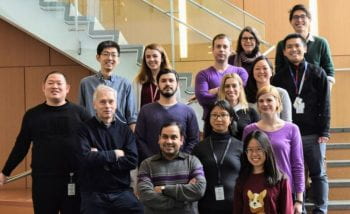
Fachi will study role of healthy gut bacteria in immunity
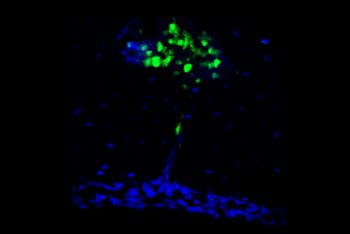
Immune cells from skull bone marrow guard the brain, spinal cord